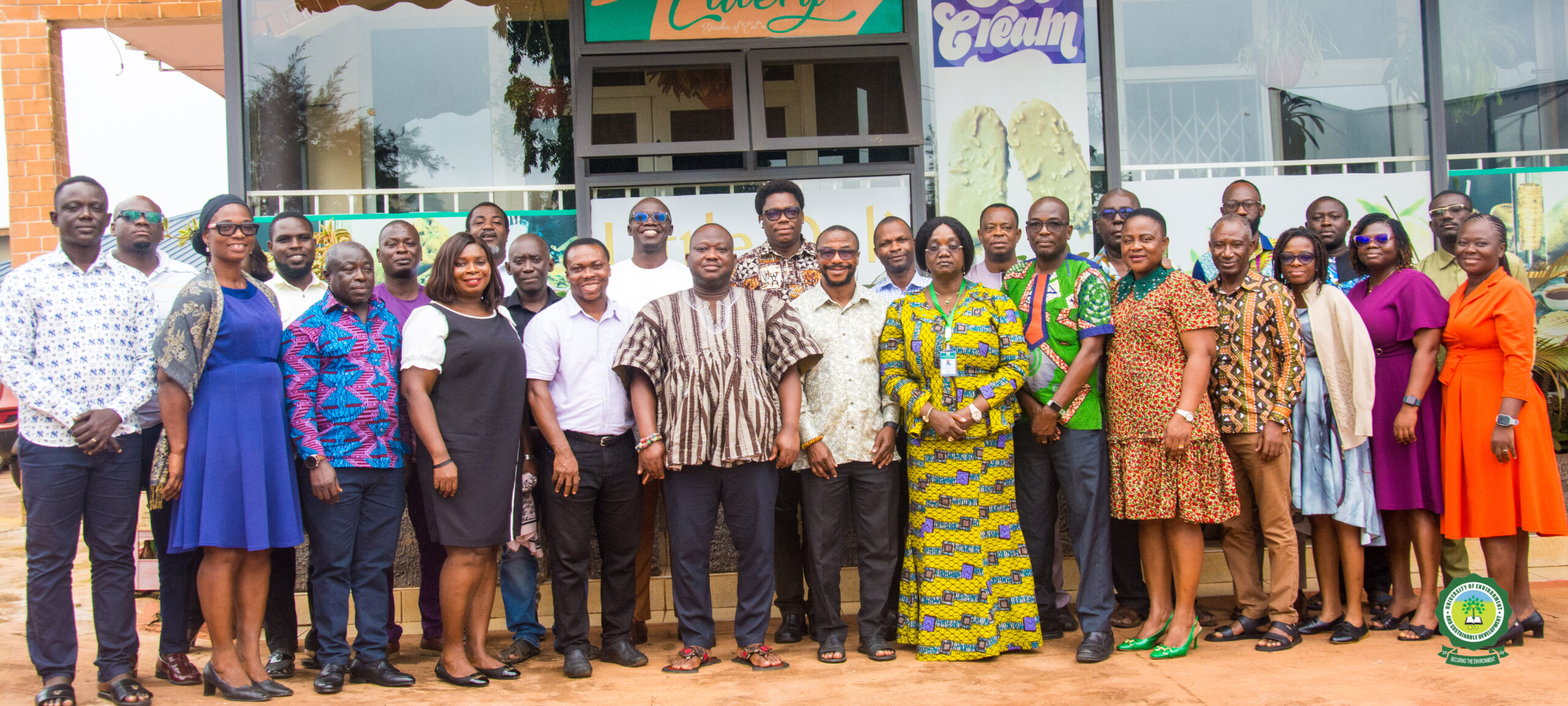As part of efforts to develop curricula for the University of Environment and Sustainable Development’s (UESD) Nkabom Initiative, a two-day consultative workshop on agro-waste and aquaculture technology was held at Akropong in the Akuapim Municipality of the Eastern Region.
Participants included representatives from aquaculture and farmer associations, traditional authorities, government agencies such as the Centre for Scientific and Industrial Research (CSIR), Environmental Protection Agency (EPA), Food and Drugs Authority (FDA), Ministry of Food and Agriculture (MoFA), and the Ghana Tertiary Education Commission (GTEC). The Koforidua Technical University (KTU), a partner institution of the Nkabom Project, also took part.
The workshop focused on reviewing the national relevance, skills gaps, uniqueness, aims, objectives, and learning outcomes of the proposed BTech Agro-Waste Technology and BTech Aquaculture Technology programmes. Discussions also covered course structures, content, delivery modes, and recommended reading materials.
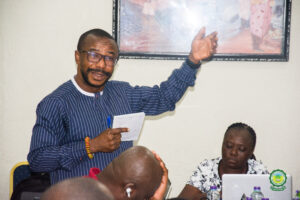
In his welcome address, the Project Coordinator, and Pro-Vice-Chancellor of UESD, Prof. Edward Wiafe Debrah, explained that the meeting was designed to bring together stakeholders from the agro-waste and aquaculture sectors to contribute their expertise. “They are the consumers — the end users of the graduates we will train — so their input is essential,” he said. Prof. Wiafe Debrah highlighted that these contributions would reflect both the perspectives of those who generate agro-waste and those who create jobs in the sector.
Representing the Project Investigator, Prof. Eric-Nyarko-Sampson, the Registrar, Mrs. Mary Abena Agyepong, described the workshop as “the linchpin between our conception and the delivery of the programme.” She reiterated the Nkabom Project’s ultimate goal is to create three million dignified jobs for young people over the next ten years, and urged participants to see themselves as active partners in achieving this vision.
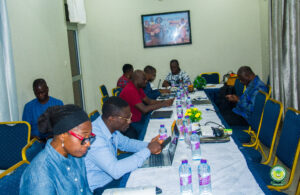
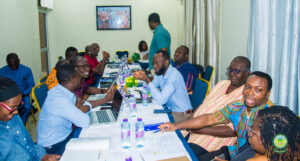
Presentations on the agro-waste curriculum were facilitated by the Project Lead, Dr. Amfo-Ou. He outlined the proposed BSc and Diploma programmes in Agro-Waste Technology, BSc and Diploma in Aquaculture Technology, as well as 15 short courses. He shared findings from a baseline assessment which revealed that agro-waste processing in Ghana remains low: Only 25% of 133 surveyed industries process their waste, while 75% dispose of it untreated, often through methods that harm the environment. Stakeholders provided input on the proposed courses, suggesting adjustments to the packaging, integration, and titles to enhance clarity and appeal.
The Project Lead for Aquaculture, Dr. Christian Larbi Ayisi, walked participants through the course content and descriptions, of the proposed BSc. Aquaculture Technology stressing the need for practical and solution-oriented training.
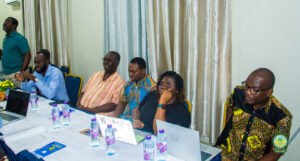

Stakeholders echoed this sentiment, recommending that the programmes address pressing challenges in waste management and aquaculture while creating opportunities for innovation and job creation.
They commended the collaborative approach to curriculum development and pledged their support during implementation — particularly in offering internship placements, sharing resources, and advocating policies to strengthen the sectors.
They also expressed hope that the curriculum would produce graduates capable of transforming aquaculture waste into valuable, marketable products that can be utilised by other stakeholders- also have a robust curriculum capable of developing the skilled workforce needed to drive the agribusiness industry while enhancing the University’s image.
By: Barbara m. yakubu

